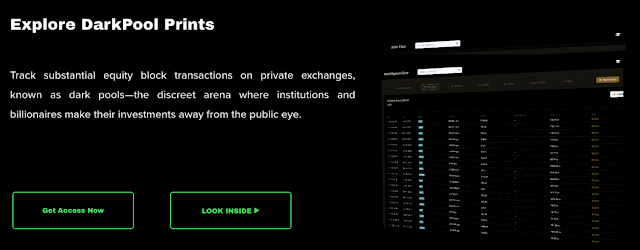Block trades are large, privately negotiated securities transactions conducted outside of the public markets. Typically arranged by institutional investors, such as hedge funds or asset managers, through investment banks or other intermediaries, block trades involve the buying or selling of significant quantities of securities in a single transaction. These transactions are executed away from public exchanges to minimize their impact on the security's price. The size of a block trade can vary widely but often involves substantial quantities of shares or a high monetary value.
Understanding Block Trades: Large-Scale Transactions
A block trade refers to a significant transaction involving the buying or selling of securities outside the regular market channels. These trades are negotiated privately between parties, away from public exchanges, to minimize their impact on the market price of the security involved. Block trades are typically executed by hedge funds, institutional investors, and accredited high-net-worth individuals, often with the assistance of investment banks or other intermediaries.
The criteria for defining a block trade vary but are generally characterized by their large size. For instance, both the New York Stock Exchange and the Nasdaq consider trades involving at least 10,000 shares of stock or worth more than $200,000 as block trades. However, most block trades far exceed these minimum thresholds in terms of volume and value.
Roles of Block Trades
Block trades play a crucial role in preventing market disruption caused by large sell or buy orders placed directly on public exchanges. By conducting these transactions privately, buyers can often secure a better price without immediately impacting the market. This discretion also prevents other market participants from anticipating the influx of additional supply or demand until the transaction is completed and publicly recorded.
To facilitate block trades, specialized intermediaries such as block houses and block trading facilities exist. These entities operate dark pools, which are private exchanges where large orders can be matched anonymously. Additionally, block houses can fragment large trades into smaller orders distributed across different brokers to conceal the true size of the transaction.
Example
For example, suppose a hedge fund wishes to sell 100,000 shares of a small-cap company currently trading at $10 per share. A direct market order of this magnitude could significantly depress the stock price, leading to slippage for the seller and attracting short-selling activity from other market participants. To avoid this scenario, the hedge fund could engage a block house to break down the trade into smaller, more manageable chunks, each executed by different brokers. Alternatively, the hedge fund could negotiate a private sale with another institutional investor outside the open market, ensuring a smoother transaction without immediate market impact.
Understanding Block Trades: Large-Scale Transactions
A block trade refers to a significant transaction involving the buying or selling of securities outside the regular market channels. These trades are negotiated privately between parties, away from public exchanges, to minimize their impact on the market price of the security involved. Block trades are typically executed by hedge funds, institutional investors, and accredited high-net-worth individuals, often with the assistance of investment banks or other intermediaries.
The criteria for defining a block trade vary but are generally characterized by their large size. For instance, both the New York Stock Exchange and the Nasdaq consider trades involving at least 10,000 shares of stock or worth more than $200,000 as block trades. However, most block trades far exceed these minimum thresholds in terms of volume and value.
Roles of Block Trades
Block trades play a crucial role in preventing market disruption caused by large sell or buy orders placed directly on public exchanges. By conducting these transactions privately, buyers can often secure a better price without immediately impacting the market. This discretion also prevents other market participants from anticipating the influx of additional supply or demand until the transaction is completed and publicly recorded.
To facilitate block trades, specialized intermediaries such as block houses and block trading facilities exist. These entities operate dark pools, which are private exchanges where large orders can be matched anonymously. Additionally, block houses can fragment large trades into smaller orders distributed across different brokers to conceal the true size of the transaction.
Example
For example, suppose a hedge fund wishes to sell 100,000 shares of a small-cap company currently trading at $10 per share. A direct market order of this magnitude could significantly depress the stock price, leading to slippage for the seller and attracting short-selling activity from other market participants. To avoid this scenario, the hedge fund could engage a block house to break down the trade into smaller, more manageable chunks, each executed by different brokers. Alternatively, the hedge fund could negotiate a private sale with another institutional investor outside the open market, ensuring a smoother transaction without immediate market impact.

